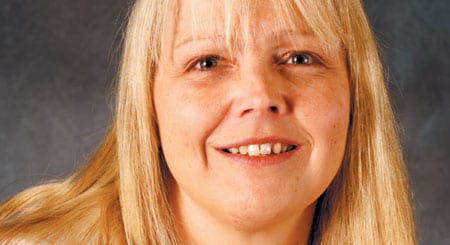
SNOHOMISH, Wash. — Sleep is something we all know we need in proper doses but that relatively few are disciplined enough to demand for ourselves.
Dr. Meeta Singh has a few truths that should have dedicated drivers in every form of motorsports snuggling in bed for nine to 10 hours a night.
Singh specializes in sleep medicine and psychiatry at Henry Ford Medical Center in Novi, Mich. She said during a presentation at the recent International Council of Motorsport Sciences Congress that sleep is “a manageable variable” that “affects all the key factors that contribute to athletic performance.”
Never mind that sleep deprivation can play a role in the onset of high-blood pressure, diabetes, heart attacks and strokes, among other undesirable consequences. That would be motivation enough for an elite athlete to consider this often-ignored element in peak-performance practices.
But sleep health can also decrease the likelihood of injury, including concussions. It can overcome a predictable system that Singh said sets up elite athletes to be vulnerable to such mental-health issues as situational stress, anxiety, insomnia, depression and the fear of not meeting steep expectations (personal or external expectations from family, fans and possibly one’s culture).
Proper sleep, she said, can even reduce sensitivity to pain and — drag racers, take note — it can improve reaction time.
According to Singh, the typical reaction time to a stimulus is “about a quarter of a second.” That’s .25 seconds — which for an NHRA pro racer at the Christmas Tree already is embarrassingly slow.
But she said that reaction time triples if a driver gets just six hours of sleep rather than eight. Moreover, chronic sleep deprivation means a performance deficit will start to compound.
On the upside, sleep’s relationship with reaction time triggers a powerful difference in peak-performance situations in cases in which a few seconds or fractions of a second matter.
The ability to have flexible/nimble thinking, the ability to strategize and the ability to integrate stored information with fresh information and arrive at new, better solutions to a problem are compromised with sleep deprivation.
Singh said that’s why when we face a significant decision, we don’t say, “I’ll eat on it.” We say, “I’ll sleep on it.” That’s because the sleeping brain (the prefrontal cortex, in particular) becomes re-energized to allow for best judgment, problem-solving, decision-making and other applications of executive functions.
Sleep offers the prefrontal cortex the chance to strengthen cognitive development and correct any imbalance between the emotional and reasoning functions of the brain.
A study within this study focuses on Circadian rhythms, our so-called biological clock. The National Institute of General Medical Sciences defines the term as “physical, mental and behavioral changes that follow a 24-hour cycle.”
Singh said, “Every cell in your body, every physiological function in your body, has a Circadian rhythm. It has a specific time your body tends to peak and it has a specific time it tends to ebb. So the time of day also is a key factor in human performance.”
Proper sleep is especially imperative, Singh said, because of the length of a season, travel and lifestyle demands.
That’s the kind of information the ICMS presents with the hope of reversing the reality that accidents are the catalyst for changes in motorsports safety. Or as four-time NHRA champion Gary Scelzi put it: “You know the saying: The rules are written in blood.”
ICMS Executive Director Tom Weisenbach said what distinguishes the ICMS is “that we’re proactive. We’re not reactive. People say, ‘We have to fix this because this happened.’ We don’t want it to happen. We want to be ahead of the game. Our members are always trying to think ahead: How can we do it better? What else can we do? What else would make the driver safe, the crew members safe?”
Nurses, doctors, EMTs, educators, scientists and engineers are among the worldwide membership whose passion is sharing research and experiences to save lives of racers, crew members, spectators and track workers.
The ICMS addresses a spectrum of topics, including head, spinal and orthopedic injuries, as well as burns, driver-rescue strategies, equipment advances, physical fitness, thermoregulation, ear protection, race track and fencing design, track liability, fire suppression, driver physiology and psychology and technology in everything from race control to in-car devices.
“It’s strictly about results,” Weisenbach said. “Our members want to be able to say, ‘We talked about it last year. We got it implemented at this race track and last week it saved a driver’s life.’ Every medical and safety person in the motorsports industry should be willing to share what you have learned so it helps the entire industry. There are thousands of racers who might be able to benefit from what you know. We have to share it. If you don’t share it, it’s useless.”
Literally thousands in the motorsports industry have wisdom and data to share, and thousands more would be the beneficiaries.
“Being an elite athlete is a 24-hour commitment,” Singh said. “It’s everything they’ve done in preparation.”
Knowledge leads to preparation, specifically in a performance-driven world.
So, racers, isn’t it about bedtime?
